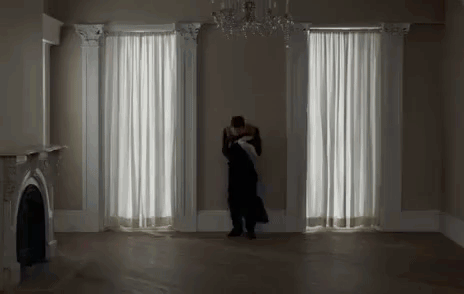First Reformed is a mesmermising work of faith and rage
Here’s why First Reformed is one of the must-see films of 2018.

The critically acclaimed First Reformed only has a tiny theatrical release in Australia, playing exclusively at Sydney’s Golden Age Cinema. Critic Blake Howard explains why it’s one of the must-see films of the year.
Writer/director Paul Schrader’s First Reformed is an utterly mesmerising, elegant work of faith and rage. From the opening frames of the film, with the 1.37:1 aspect ratio that resembles an analog television set, the spire of the Dutch colonial designed First Reformed church stands with rigid disquiet. Schrader’s conflicted feelings of contemporary Christianity swell invisibly around the steeple.
Ethan Hawke plays Reverend Toller, the pastor battling illness, seeking meaning beyond directing his small flock. In his introduction, you’re arrested by the narration of his newly established journal. Toller has decided to catalogue his life for twelve months with naked honesty. Hawke’s command of his voice affects the very timbre of the words. There’s something both mellifluous and grating in the delivery; you almost feel that the breath from these private prayers are brushing your ears. Reflexively at times, you want to pull away.

Toller’s routine is broken by Amanda Seyfried’s Mary, who requests for the Reverend to council her troubled partner – environmental activist Michael (Phillip Ettinger) – when he’s deeply troubled about the prospect of bringing a child into the world. Her partner Michael chooses to speak with the Reverend because he doesn’t reek of the “business” that their parent constituency does. After accepting the charge, Toller must wrestle with the consequences of his council and the weight of the reality of his parent Church – Abundant Life – and their entanglement with industrialist sponsors. Cedric, the Entertainer, plays Reverend Jeffers. He’s a pragmatic emblem of the tel-evangelical world, living with corporate compromise.
Schrader’s tight framing draws the audience into Toller. There are many occasions when characters share the scene with Toller and Schrader refuses to accommodate. Toller is the focal point; the magnetic north of the frame. In the rare moments that Hawke is not captured, delivering one of the most assured and calculating performances of his career, the lens captures his gaze or tip-toes into his subjective projections.
Draped with light and shadow, Toller’s private spaces are austere. Short stacks of books, empty rooms and shiny wooden floors make for such an interesting, precise contrast to the chaotic sloth of his most infamous cinematic psychopath and similarly subjective narrator, Travis Bickle (Schrader wrote Taxi Driver, amongst several other masterpieces).
The script thrills despite Schrader’s self-aware stream of consciousness in Toller’s confessional journal narration. Schrader’s aspiration in First Reformed is to deliver the same naked authenticity that Toller seeks in this practically written prayer. Schrader uses a traumatic experience, which I do not want to spoil, as the catalyst for accelerated internal conflict. With less capable hands in the scripting and the calculation of the direction and performance, it could have miserably failed.
During Toller’s “exhilarating” debate of faith and the future of the human race with Michael, he explains that wisdom is holding the two contradictory ideas of hope and despair. First Reformed achieves this insight. It is simultaneously focused, frenzied, hypnotic, politically charged and honest in a way that only a film by a maverick auteur – who no longer gives a fuck about what you think – can be.






















